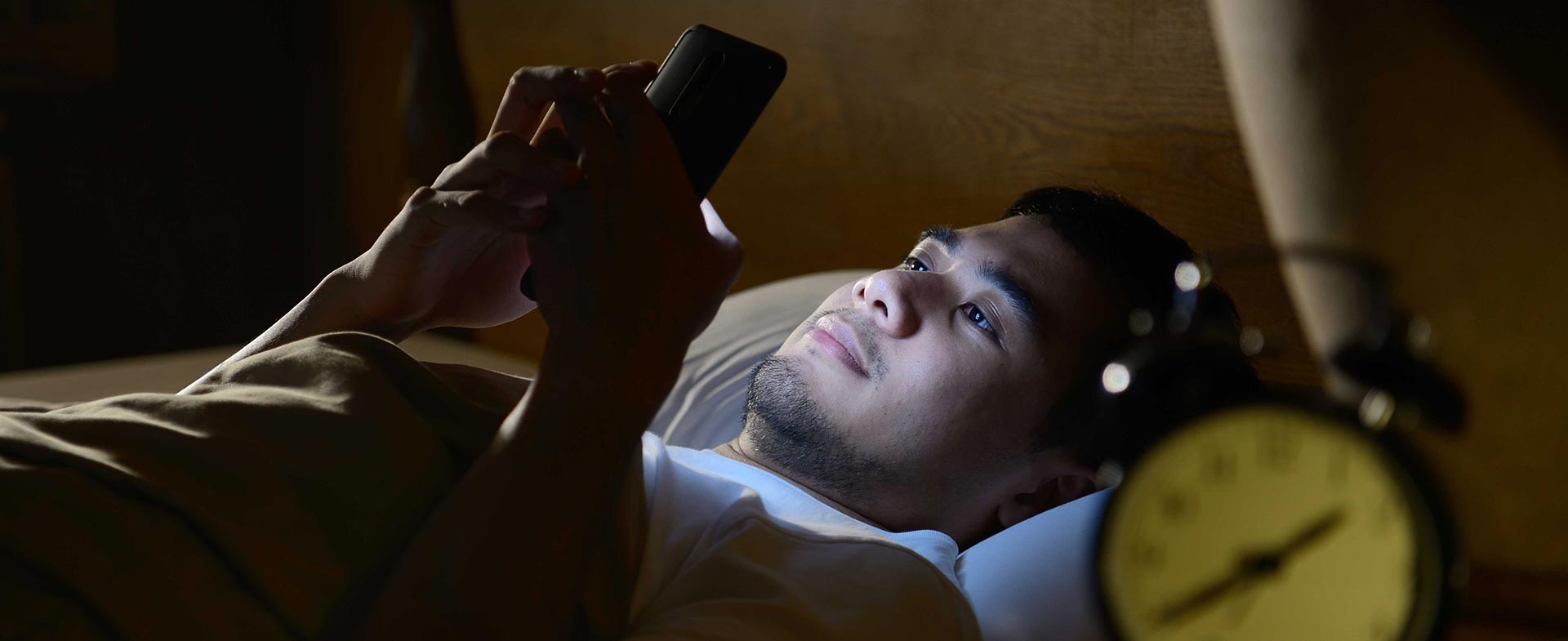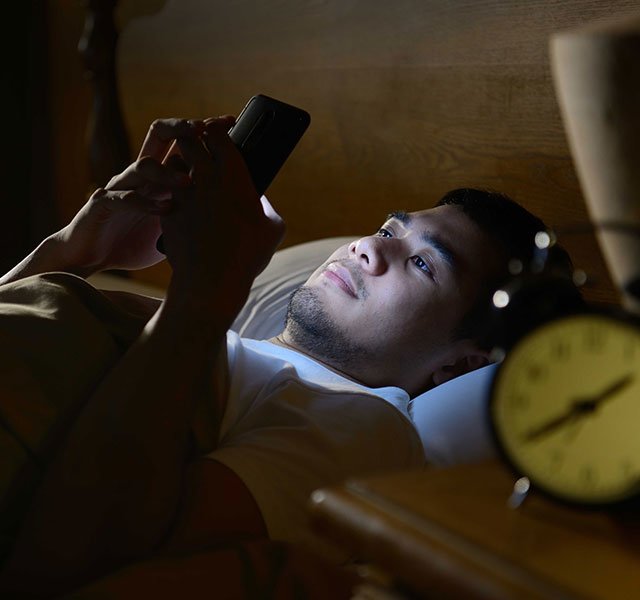Mobile apps and wearable technology help us track everything from how many steps we take to how many calories are in our favorite milkshake. Over the past decade, app developers have moved beyond fitness and food to explore other areas of wellness, such as mindfulness, mood and how much time we snooze.
“The number of apps designed to help you fall asleep, stay asleep and track your sleep habits has exploded,” says Chris Drake, Ph.D., a sleep specialist at Henry Ford Health. Some sleep apps deliver soothing sounds or white noise. Others tell you how many hours of sleep you’re getting each night. And still others offer a treatment protocol to help you get better sleep.
FAQ: Sleep Apps
Work, family responsibilities and even catching up on social media can all work together to push sleep to the back burner. In fact, according to the Centers for Disease Control and Prevention, more than a third of Americans aren’t getting sufficient shut-eye. Turns out, the right sleep app may help.
We asked Dr. Drake to answer commonly asked questions about how technology can help promote more restful slumber.
Q: Can you explain the different types of sleep apps on the market?
A: Consumers can choose from a variety of sleep-related apps from simple trackers like Sleepbot to apps designed to minimize jet lag, promote relaxation or play soothing sounds or white noise to help you rest. Other apps can actually help “treat” your sleep. These educational tools not only teach you about proper sleep habits, they also guide you toward making better sleep decisions.
Q: What are some of the better tools available to treat sleep issues?
A: There are plenty of new sleep tools that work almost like a virtual sleep therapist. You have a weekly check-in with the app, just as you would with a real-life sleep medicine therapist. Each week, participants receive additional tools to improve sleep. These sessions last less than an hour and may go on for 6 to 12 weeks. After that, you can do booster sessions as needed. The goal of these products is to package the perks of visiting with a behavioral sleep therapist into a tool people can use on their own.
Q: Do sleep treatment apps really help improve sleep?
A: Some of them do! In fact, many have been validated in scientific studies. But it’s important to note that the app industry is completely unregulated. Just because you can buy an app doesn’t mean it works. To remedy this, the FDA is beginning to evaluate apps and identify which are backed by solid scientific evidence. In the meantime, your best bet is to meet with a sleep medicine therapist to determine which product might be best for your unique needs.
Q: Does the Henry Ford Health use any of these apps?
A: Yes. The Division of Sleep Medicine at Henry Ford Health has partnered with the Sleepio app to provide treatment to some patients with insomnia. Since insomnia is linked with an increased risk of developing major depression, this research will help determine if improving insomnia using a structured sleep app can reduce the incidence of major depressive disorders.
Q: What are the drawbacks of sleep treatment apps?
A: The disadvantage of these automated apps is that they’re not personalized. They don’t offer all of the same benefits as meeting with a therapist one-on-one. For example, you can’t share your difficulties adhering to the treatment protocol. As a result, there’s no way to tailor the treatment to address your unique challenges. Nonetheless, research shows many of these programs can make a real difference in how well you sleep.
Q: What about tracking devices that monitor how much sleep you’re getting? Are they useful in terms of improving sleep?
A: Sleep trackers date back to the 1970s. They were first developed out of sleep research laboratories. Today’s trackers are accessible, easy-to-use and relatively inexpensive. They’re also pretty accurate. The problem is, they don’t offer solutions. If a sleep tracker says you’re only sleeping four hours each night, it may help motivate you to make sleep more of a priority. But sleep trackers are not medical devices and can’t tell you if you have a sleep disorder.
Sleeping Soundly
One of the keys to getting better sleep is relaxation. “If you have anxiety about sleep — you’re not getting enough or you worry that you won’t be able to fall asleep — other mindfulness and meditation tools like Headspace and Calm may help,” Dr. Drake says. The idea is to ground yourself in the moment and quiet your mind so you can get a better night’s sleep.
Still not able to get sufficient or high-quality shut-eye? Working with a behavioral sleep therapist or using an approved sleep treatment app can help get your sleep habits back on track.
Most important, pay attention to your sleep habits. If you think you may be suffering from sleep apnea, insomnia or some other sleep disorder, talk to your doctor about seeing a sleep specialist.
To find a doctor or behavioral sleep therapist at Henry Ford, visit henryford.com or call 1-800-HENRYFORD (436-7936).
Dr. Christopher Drake is board-certified in sleep medicine and behavioral sleep medicine at Henry Ford Hospital and Henry Ford Medical Center – Columbus.



